Publications
Articles, publications, books, tools and multimedia features from the U.S. Institute of Peace provide the latest news, analysis, research findings, practitioner guides and reports, all related to the conflict zones and issues that are at the center of the Institute’s work to prevent and reduce violent conflict.
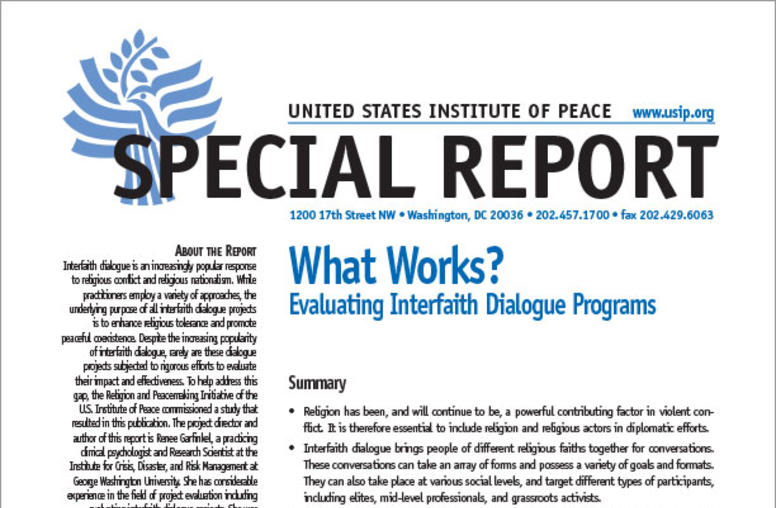
What Works? Evaluating Interfaith Dialogue Programs
Summary Religion has been, and will continue to be, a powerful contributing factor in violent conflict. It is therefore essential to include religion and religious actors in diplomatic efforts.
Mosque and State: Religion and Politics in Iraq
A Special Discussion on Capitol Hill Sponsored by The Faith and Politics Institute and the United States Institute of Peace.
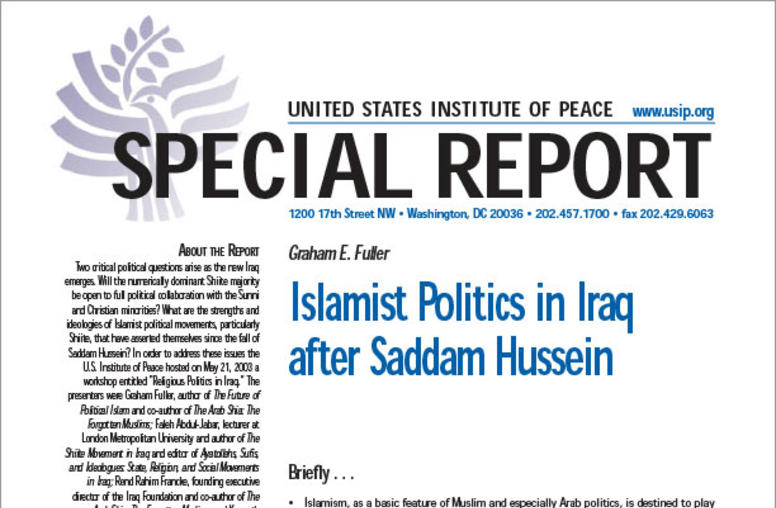
Islamist Politics in Iraq after Saddam Hussein
Two critical political questions arise as the new Iraq emerges. Will the numerically dominant Shiite majority be open to full political collaboration with the Sunni and Christian minorities? What are the strengths and ideologies of Islamist political movements, particularly Shiite, that have asserted themselves since the fall of Saddam Hussein?
Islamist Politics in Iraq after Saddam Hussein (Arabic Edition)
Summary Islamism, as a basic feature of Muslim and especially Arab politics, is destined to play a major role in the future of Iraqi politics. A huge moral and ideological vacuum has now emerged in Iraq, and Islam is tailor-made to provide a new moral compass to the people.
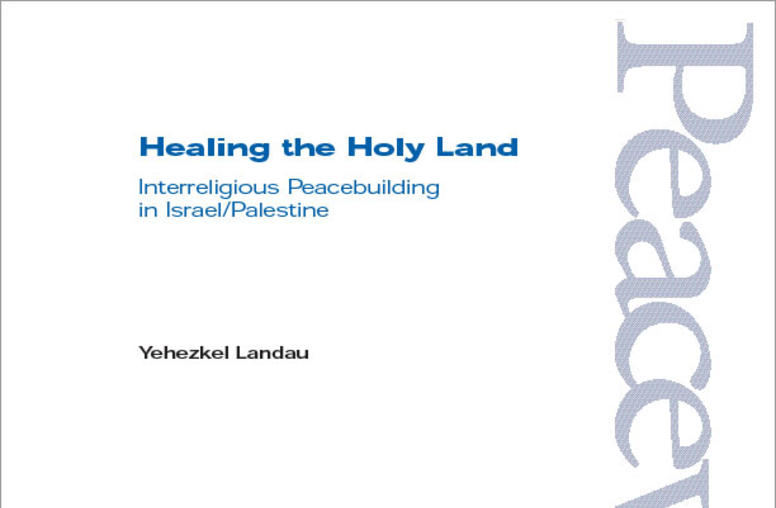
Healing the Holy Land: Interreligious Peacebuilding in Israel/Palestine
This publication documents faith-based efforts by Muslim, Jewish, and Christians to achieve a just peace in the Arab/Israeli conflict. The publication argues forcefully that religious leaders and interests must be engaged in the peace process in order to assure a sustainable, inclusive, and comprehensive settlement. The report includes the perspectives of clergy, lay, facilitators of inter-faith dialogue, religious educators, and participants in the historic Alexandria Summit in January 2002,...
The Role of Faith in Promoting Peace in the Middle East
A Special Workshop Sponsored by the Faith and Politics Institute and the United States Institute of Peace.
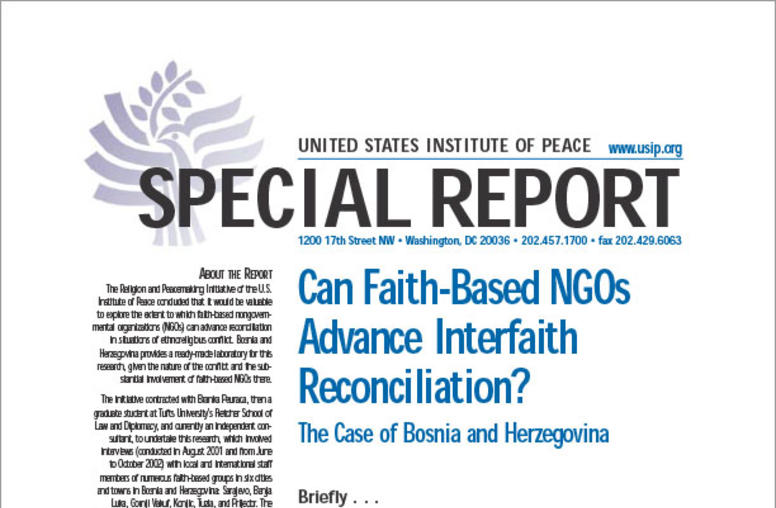
Can Faith-Based NGOs Advance Interfaith Reconciliation? The Case of Bosnia and Herzegovina
Summary Reconciliation can be an immense challenge in the pursuit of sustainable peace. Progress toward postconflict reconciliation is being made in Bosnia and Herzegovina, as evidenced by some previously unthinkable recent events. Some early initiatives toward promoting interfaith reconciliation undertaken by international actors were not well conceived and proved counterproductive.
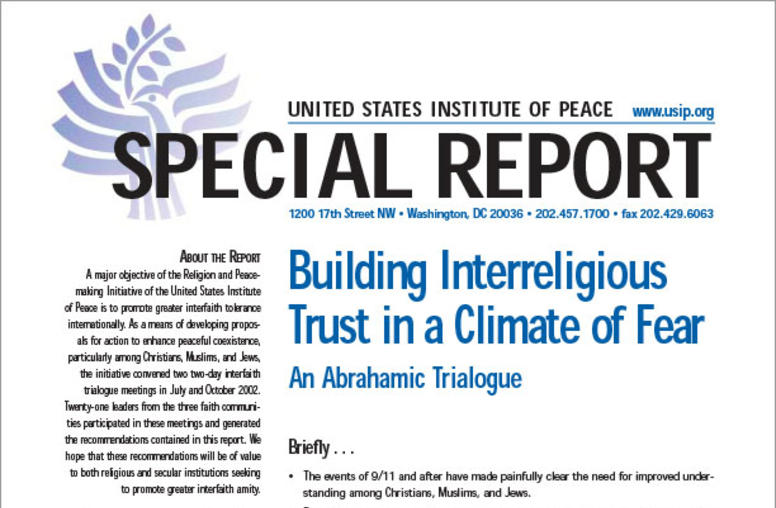
Building Interreligious Trust in a Climate of Fear: An Abrahamic Trialogue
Summary The events of 9/11 and after have made painfully clear the need for improved understanding among Christians, Muslims, and Jews. Participants in the meeting advocated that interfaith dialogue be conducted at all levels of religious hierarchies and across all segments of religious communities.
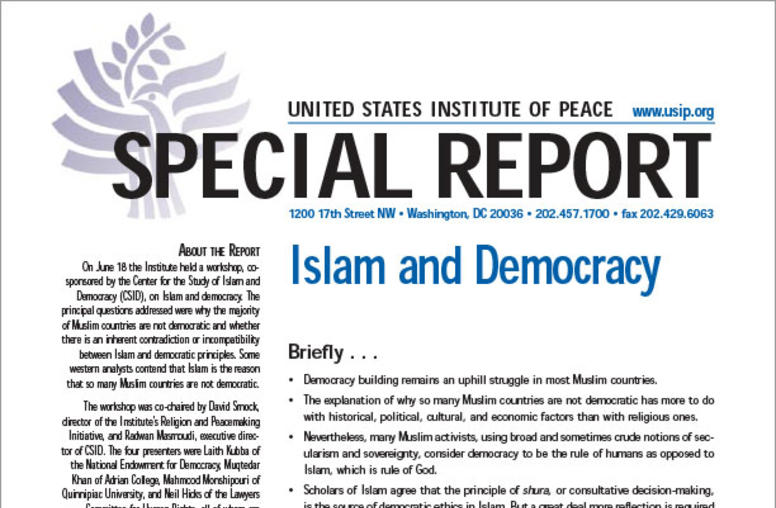
Islam and Democracy
Summary Democracy building remains an uphill struggle in most Muslim countries. The explanation of why so many Muslim countries are not democratic has more to do with historical, political, cultural, and economic factors than with religious ones. Nevertheless, many Muslim activists, using broad and sometimes crude notions of secularism and sovereignty, consider democracy to be the rule of humans as opposed to Islam, which is rule of God.
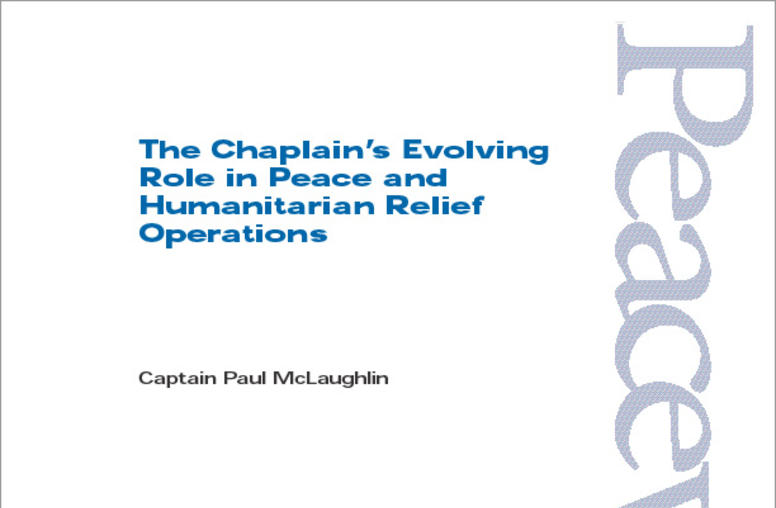
The Chaplain's Evolving Role in Peace and Humanitarian Relief Operations
To determine what role a chaplain could play in the civil-military and humanitarian assistance operations centers and teams present in an intervention, and at what point in the intervention a chaplain should be called upon to be an active participant.